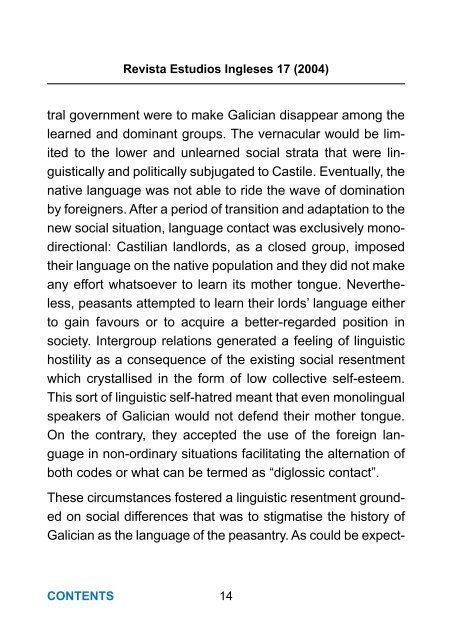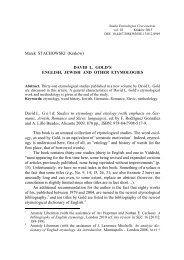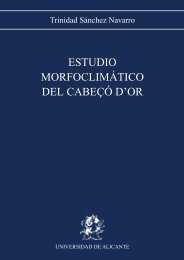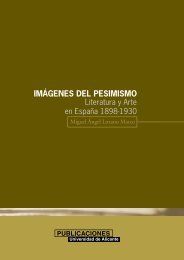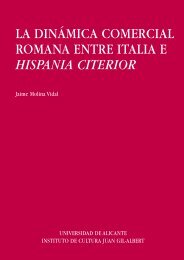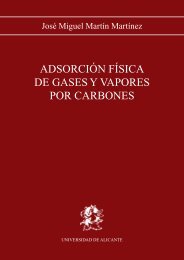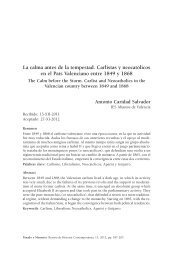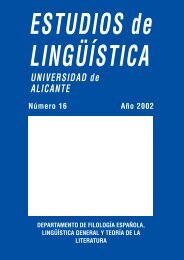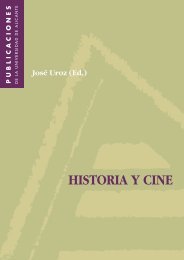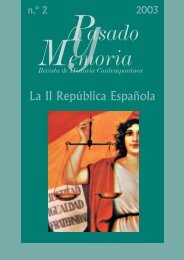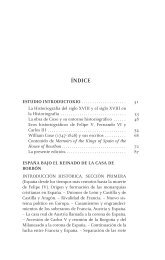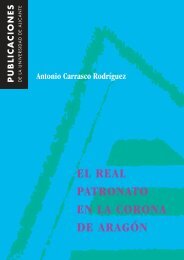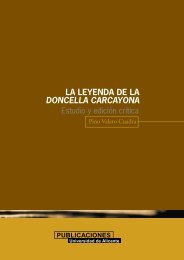English and Galician in the Middle Ages - Publicaciones ...
English and Galician in the Middle Ages - Publicaciones ...
English and Galician in the Middle Ages - Publicaciones ...
Create successful ePaper yourself
Turn your PDF publications into a flip-book with our unique Google optimized e-Paper software.
Revista Estudios Ingleses 17 (2004)<br />
tral government were to make <strong>Galician</strong> disappear among <strong>the</strong><br />
learned <strong>and</strong> dom<strong>in</strong>ant groups. The vernacular would be limited<br />
to <strong>the</strong> lower <strong>and</strong> unlearned social strata that were l<strong>in</strong>guistically<br />
<strong>and</strong> politically subjugated to Castile. Eventually, <strong>the</strong><br />
native language was not able to ride <strong>the</strong> wave of dom<strong>in</strong>ation<br />
by foreigners. After a period of transition <strong>and</strong> adaptation to <strong>the</strong><br />
new social situation, language contact was exclusively monodirectional:<br />
Castilian l<strong>and</strong>lords, as a closed group, imposed<br />
<strong>the</strong>ir language on <strong>the</strong> native population <strong>and</strong> <strong>the</strong>y did not make<br />
any effort whatsoever to learn its mo<strong>the</strong>r tongue. Never<strong>the</strong>less,<br />
peasants attempted to learn <strong>the</strong>ir lords’ language ei<strong>the</strong>r<br />
to ga<strong>in</strong> favours or to acquire a better-regarded position <strong>in</strong><br />
society. Intergroup relations generated a feel<strong>in</strong>g of l<strong>in</strong>guistic<br />
hostility as a consequence of <strong>the</strong> exist<strong>in</strong>g social resentment<br />
which crystallised <strong>in</strong> <strong>the</strong> form of low collective self-esteem.<br />
This sort of l<strong>in</strong>guistic self-hatred meant that even monol<strong>in</strong>gual<br />
speakers of <strong>Galician</strong> would not defend <strong>the</strong>ir mo<strong>the</strong>r tongue.<br />
On <strong>the</strong> contrary, <strong>the</strong>y accepted <strong>the</strong> use of <strong>the</strong> foreign language<br />
<strong>in</strong> non-ord<strong>in</strong>ary situations facilitat<strong>in</strong>g <strong>the</strong> alternation of<br />
both codes or what can be termed as “diglossic contact”.<br />
These circumstances fostered a l<strong>in</strong>guistic resentment grounded<br />
on social differences that was to stigmatise <strong>the</strong> history of<br />
<strong>Galician</strong> as <strong>the</strong> language of <strong>the</strong> peasantry. As could be expect-<br />
CONTENTS<br />
14


